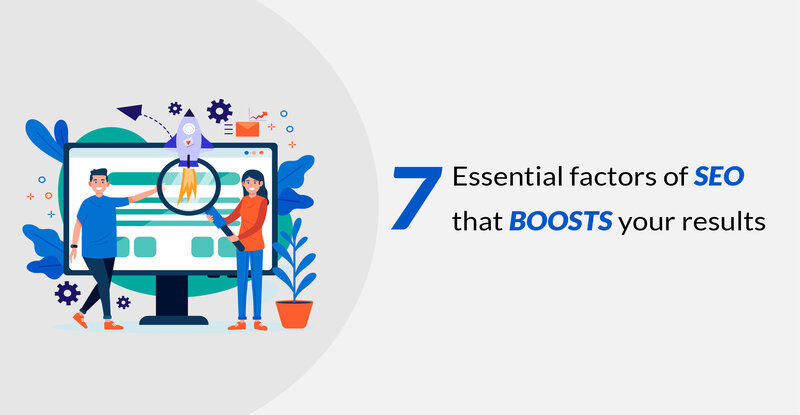7 essential factors of SEO that boosts your results
As traditional marketing strategies are being transformed into digital ones, implementing SEO as the most effective way to be visible online and attract results is essential for success.
The main objective of SEO is getting the right results, taking into account the essential factors of SEO. More than 200 factors impact search engine rankings. Below are some of the crucial SEO elements to be considered.
These SEO elements are further categorized into:
On-page SEO – Elements present on websites that you can control.
Off-Page SEO – Elements outside your website that you cannot directly control.
On-Page SEO
Identify and Index
You won’t be visible unless Google crawls your website and indexes it properly. The Identification of your website determines how easily Google can find it. Google constantly crawls the web using bots to discover new pages. Google crawlers discover content through links. The crawlers of Google submit data to Google to analyze the site and index it. To enhance your site’s Identification and indexability:
Upload a sitemap: A sitemap is a directory of your website which links to your most important pages: update XML and HTML sitemaps for Google to find your content.
Add internal links: Add links between your pages to help Google discover your content.
Check your .txt file: Ensure crawlers get the correct information in a text file.
Quality Content
Creating high-quality content that provides the information that users are seeking. Users prefer high-quality content on web pages. It is essential to provide accurate, relevant information and ensure that the users get what they need from the content. Be sure your content does not include
- Duplicate information
- Automatically generated content.
- Content with less substance.
- Stuffing keywords more than required
- Doorway pages.
Keyword Stuffing
Use keywords properly. Stuffing your pages with keywords is essential, but using them sparingly is a better practice. Overusing them will negatively affect your search engine rankings. Google can increasingly look beyond keywords to determine what a page is about. Include your target keyword in your page’s title tag, H1 heading, and meta description.
Search Intent
Search Intent is to know the user’s motive in searching the keyword. It’s essential to understand the search intent of each keyword you target. Search Intent is more precise for some keywords than others. To determine the search intent, search it on Google and look at the top results to see what needs they fulfill. The search intent includes:
Informational: The user looks to learn something.
Navigational: The user wants to redirect to some page.
Transactional: The user wants to buy something.
Read more: https://digitalcatalyst.in/blog/7-essential-factors-of-seo-that-boosts-your-results/

Comments
Post a Comment